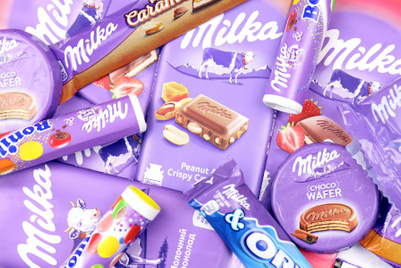
See all coverage of the 2015 Media360 Summit
Too many big organisations persist in labouring under certain delusions, said Bonin Bough, EVP of global media and consumer engagement at Mondelez International, during a fiery keynote session towards the end of the day. Top of the list is the notion that people still want to work for a company.
“It’s not about where you go to work anymore, it’s about who you go to work with,” Bough said earnestly. “We’re not competing with other media companies for talent anymore, we’re competing with [the likes of] Google. Google has Ray Kurzweil. Even I want to work with Ray Kurzweil!”
Big organisations, he continued, don’t understand a talent economy where the individual is celebrated. “We don’t get that they [the talent] are asking, ‘What's in it for me?’. We say, ‘We offer you no equity, no growth, golden handcuffs and we can fire you at anytime’. They say, ‘No!’
Too many people in the industry simply shrug when confronted with this issue and say, ‘It’s a generational thing’.” But it’s not just a generational gap, argued Bough — it’s a multibillion-dollar generational gap.
Companies fail to understand, Bough went on, that the one person who can change an entire organisation doesn’t exist.
“Everyone at Google is a change agent. They’ve invested in their talent in different ways to encourage everybody to be the change they need. They don’t invest in one guy. One guy does not win a war. An army does. Half the people there used to work at a CPG firm. They’re not there anymore.”
Bough questioned whether big organisations even have the ability to attract and retain the right kind of talent anymore. “We have created this lost generation. We have MBA graduates who haven’t learnt about the new economy. Less than one per cent of the top MBA programmes even use the words ‘mobile’ or ‘emerging’.”
Big organisations haven’t prepared talent for how this generation of business operates, said Bough. “Then we tell them that we want innovation. That we want them to change the way we operate but in reality, what we want is incrementality.”
Amazon and Google are not going to stay in their corners. “I talk to those guys all the time, and they say, ‘We’re tired of selling books, we want to sell cookies and chocolate bars, we want to reinvent the hotel industry, the travel industry …’ They are looking at our organisations and saying ‘We are better’. And we have to ask, ‘Are they?’”
Even within his industry, many executives have asked Bough why he’s staying with a CPG company and not moving to a tech firm. “Even we don’t’ believe in ourselves anymore. Why would we expect the next generation of talent to come work for us?”.
Companies have to think about re-skilling an entire generation, to turn each individual of them into ‘rock stars’, argued Bough, while on the screen behind him a comic strip asked, ‘What if we train them and they leave?’ answered by ‘What if we don’t, and they stay?’
“There’s an interesting book called The Alliance and it’s by Reed Hoffman. It asks the questions, ‘How can companies invest in the market value of their employees?’; ‘How can they make their employees more marketable?’”
Big companies don’t do this, said Bough. “Instead we try to hide them, like they don’t exist. Guess what? LinkedIn exists and other companies will find them.”
At Mondelez, Bough has been working with its leadership to try and address these problems. “We have had our marketers go out and work with startups for a week. The result has been such a massive change in their mindset. There is only one problem: now the ask me, ‘Should we go work for a startup?’ I say, ‘No! If my top marketers quit, I will be fired, and I like my job.”
Mondelez has also launched an initiative to spotlight their young managers “To make them feel so loved and special they don’t want to go anywhere else,” said Bough. One such example is Honey Maid’s brand leader Gary Osifchin, the brains behind the brand’s ‘This is Wholesome’ campaign which introduced non-traditional families into US prime-time advertising. Osifchin has been interviewed by not just US but global media and appeared on Good Morning America.
“My point in all this is simple. When you change the equation of what it means to be an organisation that invests in talent, and you invest differently. That will drive growth for the next three to five years,” concluded Bough.
See all coverage of the 2015 Media360 Summit


.jpg&h=334&w=500&q=100&v=20250320&c=1)


.jpg&h=334&w=500&q=100&v=20250320&c=1)
.jpg&h=334&w=500&q=100&v=20250320&c=1)
.jpeg&h=334&w=500&q=100&v=20250320&c=1)


.jpg&h=334&w=500&q=100&v=20250320&c=1)





.jpg&h=268&w=401&q=100&v=20250320&c=1)

.jpg&h=268&w=401&q=100&v=20250320&c=1)
.jpg&h=268&w=401&q=100&v=20250320&c=1)